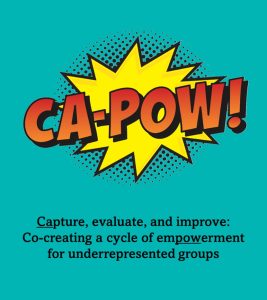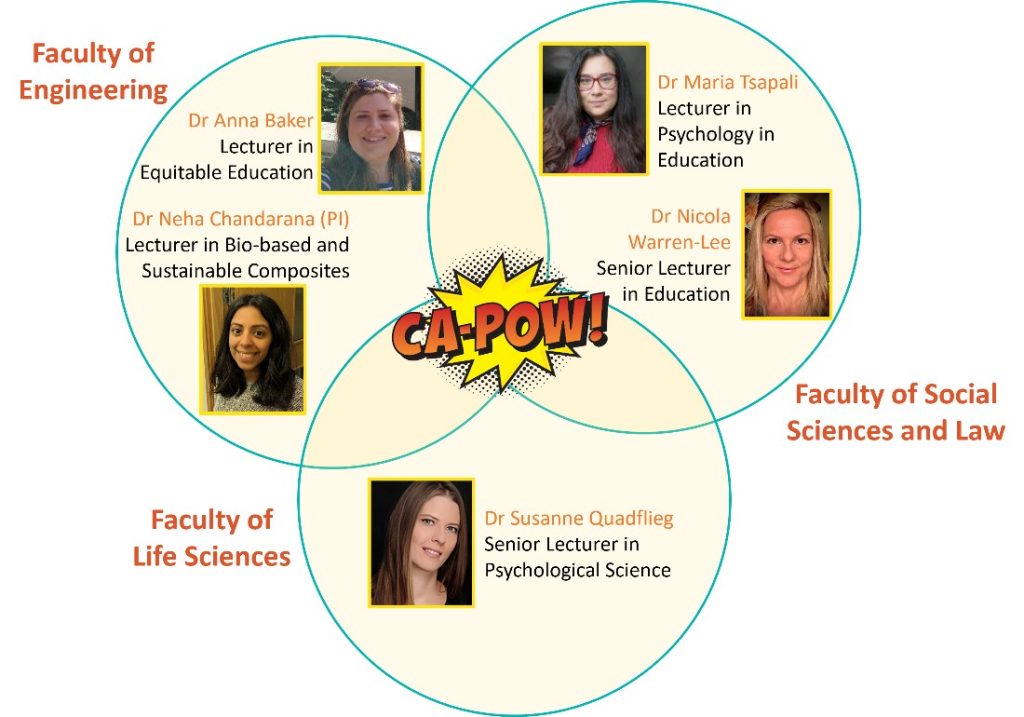Crushing jelly in a mobile van parked on a street in Bristol? Finding the links between silica sea sponges and aeroplanes whilst eating toasties? Playing snap with composite cards? Not your average day in Bristol Composites Institute… instead a new and enriching experience in the Discover Composites Youth Club on Wheels project!
The Youth Club on Wheels from Young Bristol takes youth work out into numerous hard to reach areas of Bristol. The skilled youth workers and their large mobile van provide a safe haven for young people to come together, chat and play games. Equipped with wifi, a large screen and a seating area, the van is strategically parked where young people are likely to be – for example across the road from the skatepark, or in the centre of a housing estate.
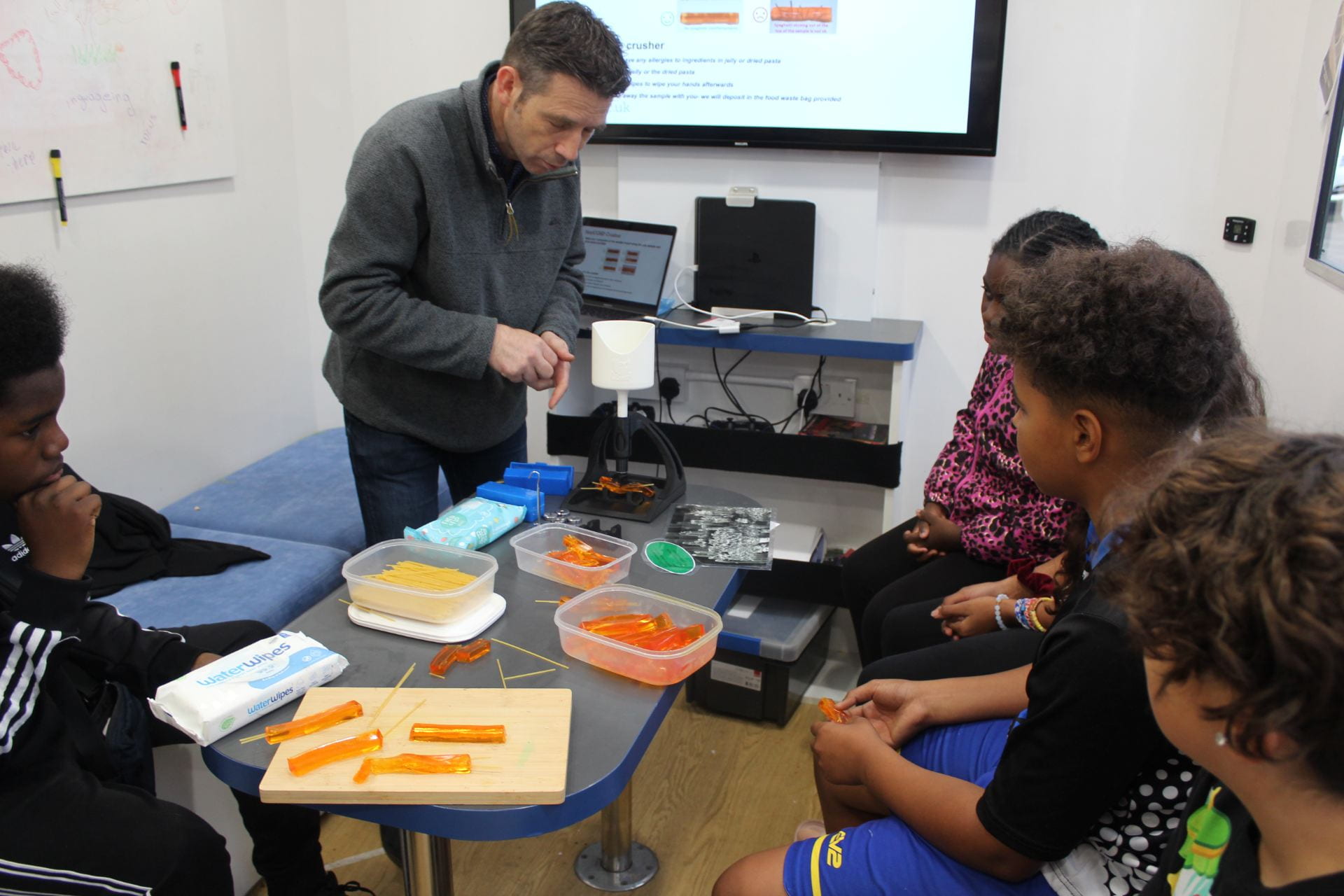
NextCOMP have been working with Young Bristol and University of Bristol Public Engagement specialists to co-produce a “workshop in a box” to enthuse and inspire the next generation of composite engineers. Funded by FUTURES, the project is a pilot, and aims to devise a set of activities including guidance documents which can be delivered to young people by non-technical specialists. The project seeks to strike the balance of designing for accessibility in the environment while still being interesting and different, aiming to spark curiosity in the intended audience. The hope is that the “workshop in a box” activities could be offered to other youth groups such as scouts, guides, after school clubs and even schools.
From the outset, the project team worked to explore and understand some of the challenges of reaching young people in this setting so that activities could be appropriately designed. Numerous logistical challenges of space, transportation, quick access and ease of use are compounded by more challenges of unknown numbers and age range of the young people, potential barriers young people may have to educational activities that might feel too much like school, and inevitable distractions in the environment.
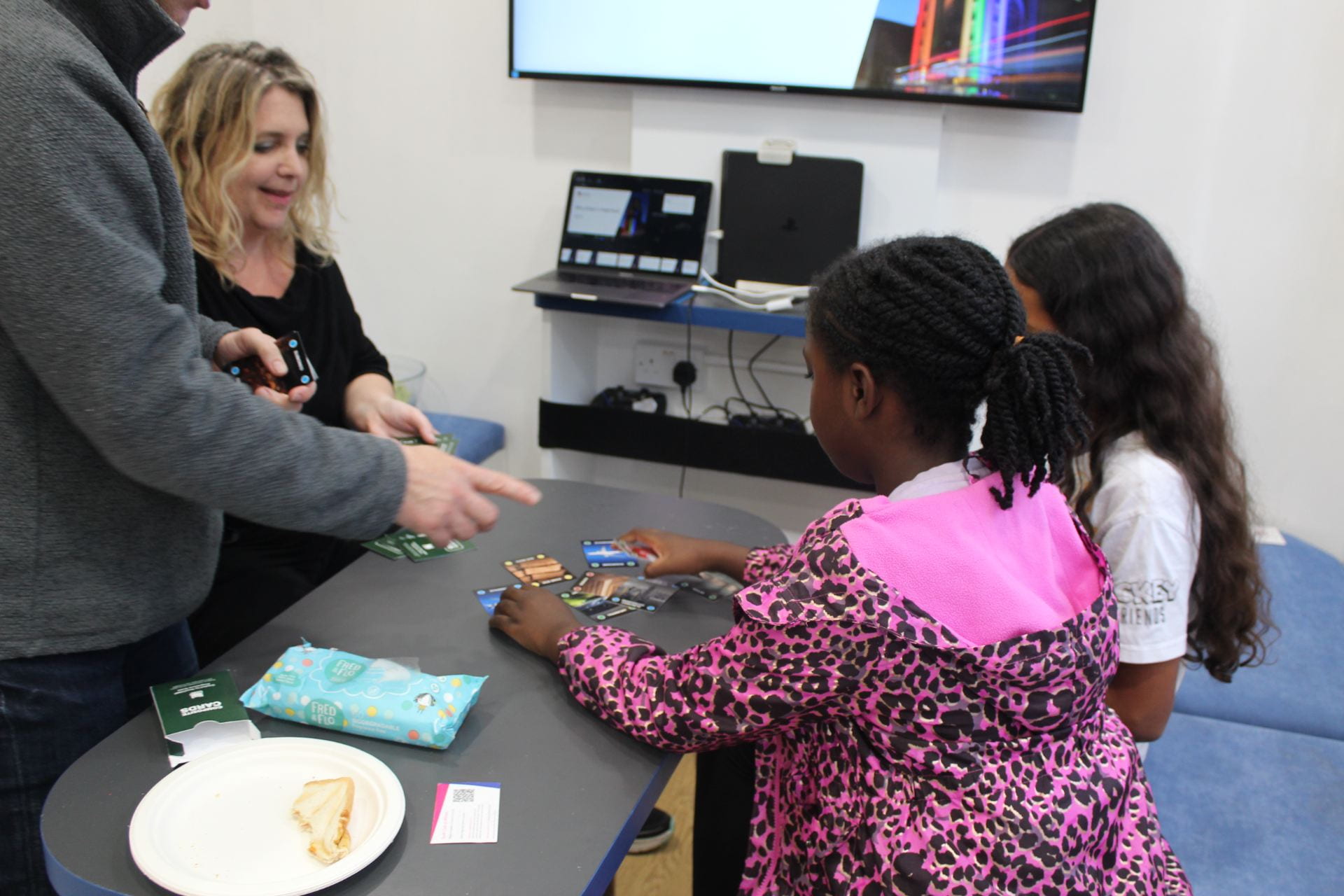
As a result, we developed a range of self-contained 10-15 minute long activities which can be deployed at different points in any order, in the session depending on the circumstances. The session includes a range of ideas from discussion-based activities through to very practical hands-on manufacturing and testing activities.
The “NextCOMP Crusher” used before in NextCOMPs outreach and engagement delivery has been redesigned for ease of use and transportation and remains a favourite – what’s not to like about making and testing composites made from jelly and pasta? We have designed a set of new “composite cards”, a deck of themed cards using which can be played individually or collectively. In a material show of strength we have created the world’s first “composites tug of war” activity from clay and household objects. Our latest ‘challenge’ is showing the impact strength of chocolate – with the help of our fantastic engineering workshop, we have developed a flat-packed pendulum test to show the benefit of liquorice laces in dark chocolate – what’s not to love about that experiment!
Two sessions have already taken place (Henbury and Speedwell) with two more to go, and we continue to evolve and develop the activities and the guidance documentation as we deliver each session and encounter new challenges and engage with different young people.
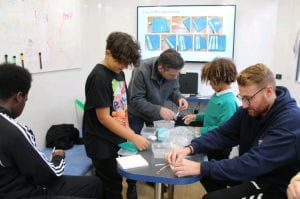
Youth Club on Wheels Young Bristol lead Shea Stew said “This is an absolutely awesome project with well thought out activities, fun and to the point.. It makes science more obtainable for these young people.. The young people are getting something different out of it in the sense that they are learning and thinking about materials and the science behind [them]. Feedback from young people has been great, with young people who don’t like school having really enjoyed the activities and reporting back that they have since been paying more attention in science lessons.”
Prof Richard Trask commented, “What an amazing experience… talking about the world around us to highly energised and inquisitive minds. Working with Young Bristol has been inspiring. I have learnt so much and continue to learn. The most important lesson is that there are plenty of budding composite engineers out there, we just need to find the funds and novel ways to get materials and engineering out into the community…”
For more details or any queries about the project contact Jo Gildersleve, NextCOMP Project Manager on jo.gildersleve@bristol.ac.uk

